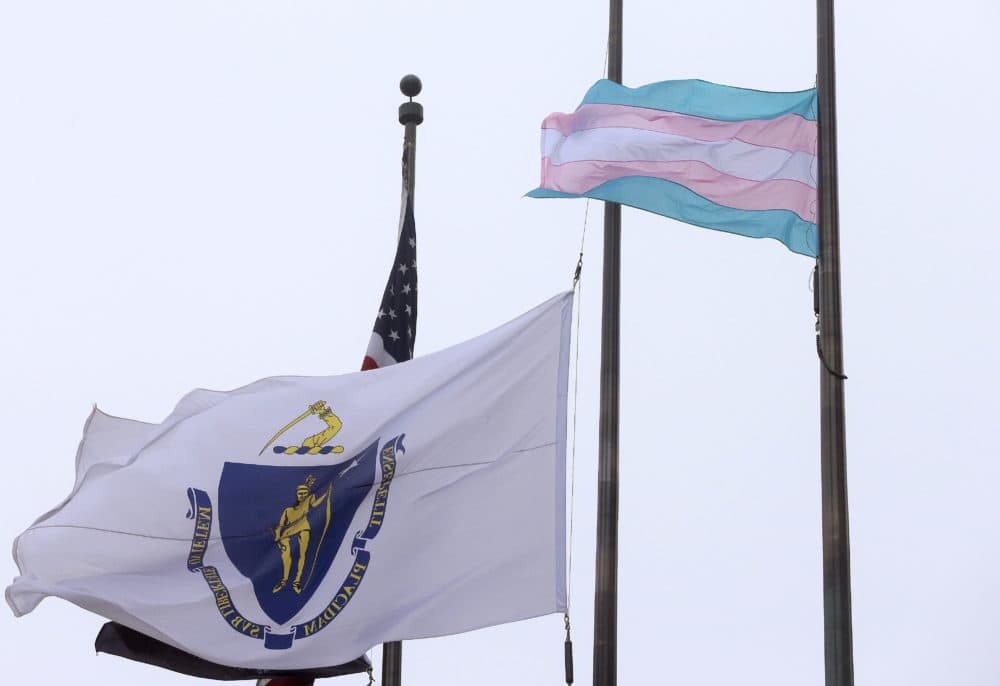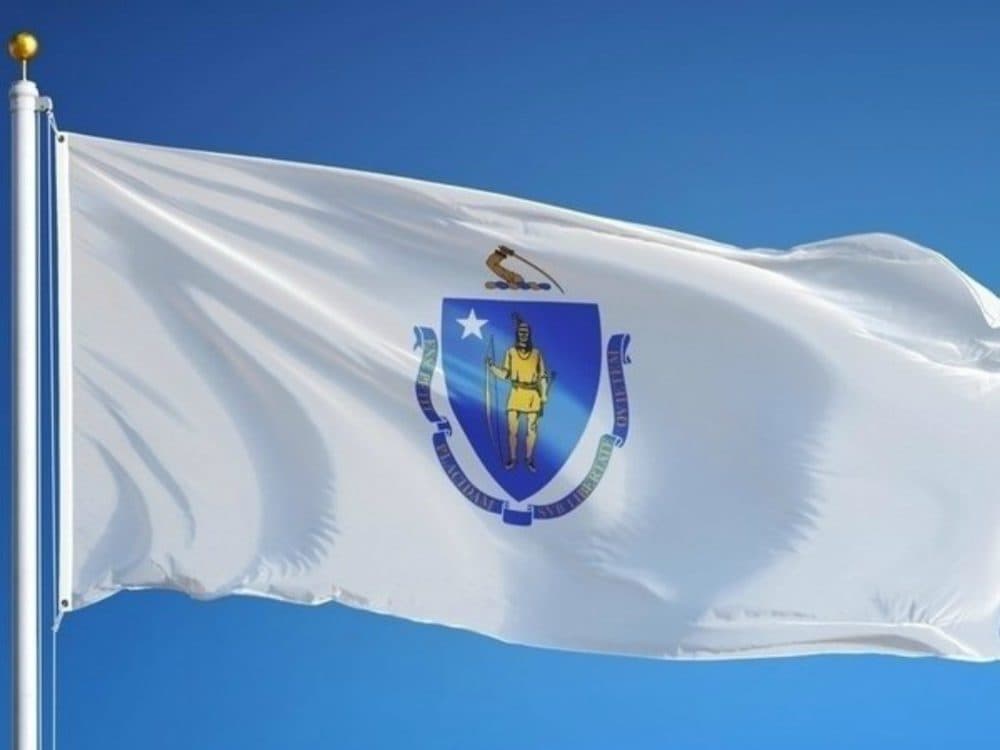Advertisement
Commentary
The Mass. Flag Honors The Oppression Of Native Americans. It's Time To Change It

When confronted with a public question, we traditionalists instinctively consult history for solutions that have stood the test of time. But savvy people don’t blindly defend every historical hand-me-down, no matter the reverence it commands. The father of modern conservatism, English statesman-philosopher Edmund Burke, understood that any tradition deserving of conserving must adapt to changing mores.
“A state without the means of some change is without the means of its conservation,” wrote Burke, who opposed (albeit fitfully by our standards) the British Empire’s traditions of racism and high-handedness. King George might have preserved is overseas real estate if he'd heeded Burke's sensibilities.
Some Massachusetts traditionalists are ignoring Burke’s wisdom in the debate over whether to redesign the state flag, which offends Native Americans, with its depiction of our own imperialism towards them. Pending legislation to create a study commission for a possible redesign of our state seal and motto has been endorsed by 30 municipalities, including Cambridge’s city council, which also voted remove the flag from its chamber.
The Legislature should pass the bill. It would initiate review of a flag that many Bay State residents probably haven’t noticed until now — I hadn’t — featuring a Native American with the disembodied, sword-wielding arm of Myles Standish hovering over his head. With next year’s 400th anniversary of the Mayflower’s dropping anchor at Cape Cod, this symbolism takes on added currency.

To schoolchildren, Standish is he-of-the-first-Thanksgiving fame. To the Pilgrims, he was their military adviser. To his Native American contemporaries, he was a butcher, his preemptive attacks disturbing enough to be recorded by less hotheaded colonists, his martial attitude captured by the brandished sword. The Massachusetts motto, in Latin, curls around the Native on the flag: “[She] seeks with the sword a quiet peace under liberty.”
It would be hypocritical to argue, as I have, that southern states should mothball Confederate flags and monuments, while ignoring our own history. We would be aghast at honorific flags and monuments to the Third Reich. Nazism’s neighbor in hell, racism — whether honoring slaveholders and Confederate traitors or a Plymouth Colony forerunner of our genocidal treatment of Native Americans — is similarly indefensible in a memorial.
Some attached to tradition can’t wrap their minds around this. State Rep. Lindsay Sabadosa, one of the sponsors of the proposed commission, told WGBH that some constituents tell her, “‘Oh, well, you know this is a symbol of our past and we want to make sure that we’re respecting our native heritage.’ And that is true. We do want to make sure that we’re doing that.
“I’m not sure, though," she continued, "that by putting Myles Standish’s sword over the head of a native person that we are really doing that.”
Amen. Replacing the Bay State flag isn’t rewriting history. It can be displayed in museums, the prejudice undergirding its design explained in historical context. Nor does it denigrate Massachusetts. Rather, it acknowledges the pain inflicted on Native Americans, whose suffering merits our memory, and testifies to a virtue of any great nation: admitting wrongdoing in light of evolved recognition of that wrongdoing. Change, as Burke noted, is as inevitable as the sunrise.
Replacing the Bay State flag isn’t rewriting history.
A second objection to a new state flag involves cost. The state seal on the flag adorns many other things (it’s part of the state police logo, for example), and to eradicate it completely would require purchasing everything from new flags and uniforms to new police cruisers.
You have to wonder whether these critics would manage to exorcise their frugality if the symbol were offensive to their personal ethnic sensibilities. Anyway, Haartman Deetz, a tribal member of the Mashpee Wampanoag, reasonably supports a gradual, affordable phaseout of the flag and seal as cars and uniforms age and are replaced.
What might a redesign look like? Deetz suggests replacing the sword with a peace tree. It would be the commission’s job to spotlight this and other ideas.
A commission to consider a new flag has been proposed in Massachusetts for decades, and gone nowhere. Elsewhere conservatives understand the corrosive power of emblematizing historic bigotries. With bipartisan legislative support and the signature of its Republican governor, Vermont recently became the third state to rechristen the second Monday of every October as Indigenous Peoples’ Day. Shaving Christopher Columbus’s name off the holiday honors two facts of history: The Italian explorer brutalized many indigenous peoples; and when it comes to “discovering” America, they were here first.
I’d like to think Edmund Burke would concur.
